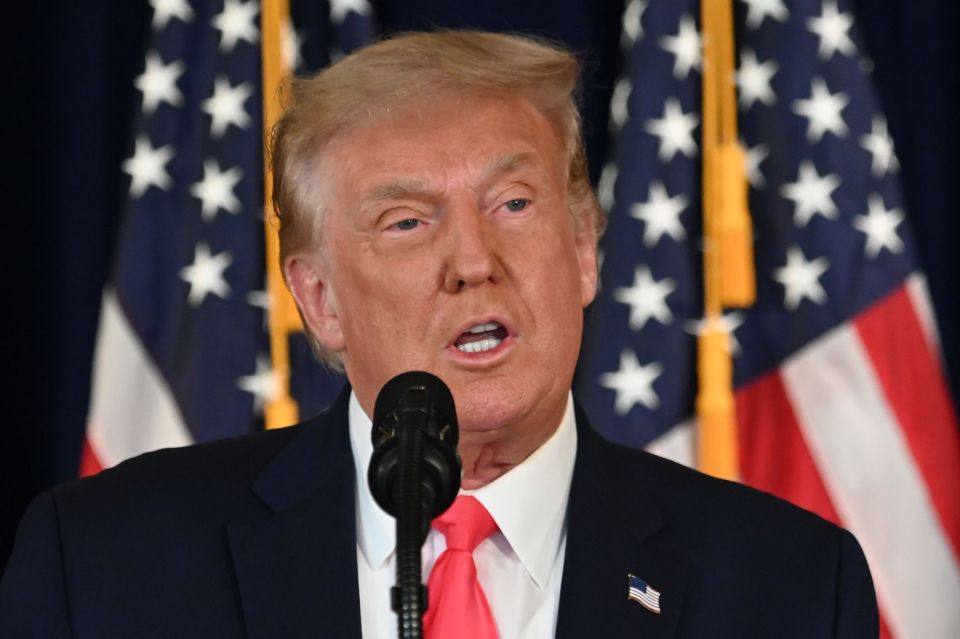The yen is depreciating, the dollar is rising, why does Trump say "no"?
静观Finance
2024-04-24 22:18Published in Hebei Finance and Economics columnist
The yen is depreciating, the dollar is rising, why does Trump say "no"?

At a time when the yen is depreciating and approaching historical records, Trump can't get used to it!
Trump said "no" to the yen's depreciation.
Former U.S. President Donald Trump recently criticized the yen for falling to a new low in about 34 years against the U.S. dollar on social platforms, calling it a disaster for the United States. He argues that the dollar's appreciation against the yen would weaken the price competitiveness of U.S. exports, forcing U.S. manufacturing to either lose business opportunities in overseas markets or be forced to build factories there. Trump has consistently opposed the dollar's appreciation against other currencies, especially the yen. So why is Trump so opposed to the dollar's appreciation of the yen?
First, Trump believes that the dollar's appreciation against the yen is detrimental to the development of U.S. exports and manufacturing. During his presidential campaign, Trump proposed to revitalize the U.S. manufacturing industry and create jobs. He believes that the large trade deficit in the United States is a serious problem that will be further exacerbated by the appreciation of the dollar. When the U.S. dollar appreciates against the yen, the price of U.S. goods exported to Japan rises relatively, weakening the price advantage of U.S. goods and reducing the competitiveness of U.S. companies in the Japanese market. This will not only affect U.S. exports to Japan, but will also force some U.S. manufacturing companies to relocate factories overseas to reduce costs, resulting in the loss of domestic jobs. Therefore, Trump is adamantly opposed to the appreciation of the dollar against the yen.
Second, Trump believes that Japan is manipulating the exchange rate and deliberately leading the yen to depreciate. During Trump's presidency, he repeatedly accused Japan of currency manipulation, listing Japan as a "target of surveillance" by currency manipulators. The Trump administration believes that Japan has deliberately taken measures to devalue the yen in order to stimulate exports in order to gain an unfair trade advantage. During the 2019 negotiations on the Japan-US trade agreement, the Trump administration also pressured Japan to include a clause to prevent currency manipulation in the agreement, but Japan opposed it. Trump believes that Japan's currency manipulation is harming U.S. interests, and therefore firmly opposes the depreciation of the yen.
Third, Trump advocated measures to curb the excessive appreciation of the dollar. Trump has said that during his presidency he "set limits" to curb the dollar's appreciation, while current President Joe Biden "let it go." In early 2017, Trump also said that the dollar was "overly strong", suggesting that the United States might need to devalue the dollar. Trump believes that a moderate depreciation of the dollar is conducive to improving the international competitiveness of the US manufacturing industry and expanding employment. He may follow the example of President Reagan and induce the dollar to depreciate through verbal interventions, and even push for a 1985 "Plaza Accord" exchange rate deal that would force the yen to rise sharply.
Finally, there are political considerations for Trump's opposition. Criticizing Japan's exchange rate manipulation and criticizing the depreciation of the yen caters to the psychology of some voters in the United States who are anti-globalization and advocate trade protectionism. Blaming Japan and other countries for unfair trade practices can justify U.S. trade protectionist measures. At the same time, the appreciation of the US dollar will also pose some inflationary pressure on the US economy, which may affect Trump's approval rating. As a result, Trump is also politically motivated against excessive appreciation of the dollar against the yen.
To sum up, there are several reasons why Trump opposes the appreciation of the dollar against the yen: first, the appreciation of the dollar is not conducive to the development of U.S. exports and manufacturing, and exacerbates the U.S. trade deficit; Second, Trump believes that Japan is manipulating the exchange rate and deliberately leading the yen to depreciate to the detriment of the United States. Third, Trump advocated measures to curb the excessive appreciation of the dollar, believing that a moderate depreciation of the dollar is conducive to enhancing the competitiveness of the US industry. Fourth, there are also certain political considerations against the appreciation of the dollar, which caters to the psychology of some voters.
Looking ahead, the trend of the US dollar exchange rate is also affected by multiple factors. Although Trump is not currently president, his views on the exchange rate issue represent the attitude of some politicians and industry in the United States. The exchange rate between Japan and the United States will continue.
View original image 202K
-

The yen is depreciating, the dollar is rising, why does Trump say "no"?